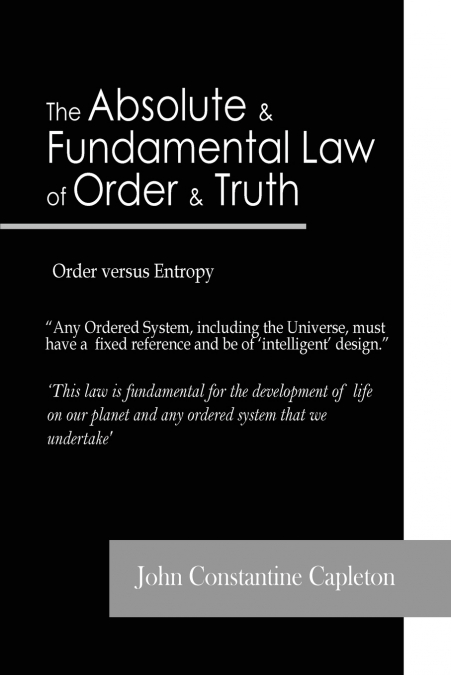
 Librería 7artes
Librería 7artes
 Donde los libros
Donde los libros
 Librería Elías (Asturias)
Librería Elías (Asturias)
 Librería Kolima (Madrid)
Librería Kolima (Madrid)
 Librería Proteo (Málaga)
Librería Proteo (Málaga)
This book describes the fundamental laws and principles that were necessary to develop an ordered system like the universe in which we live. Without these laws, there can be no order. Together they set the foundation for the development of ordered systems that exist in harmony with each other. Any ordered system must have a fixed reference, otherwise it will not remain ordered. The reference must be set and not changed for the creation and development of any individual ordered system. In order to initiate any material ordered system, the reference must first be set and sequential steps taken until the system is complete. To accomplish this, the system must first be planned. Planning is necessary as the reference and sequencing will vary with each ordered system. The designer must have some concept of the finished product in order to develop the sequencing as well as recognize when the system is complete and operating as designed. To do this, the creator or designer must be external to the system. In other words, an ordered system cannot initiate or develop itself.